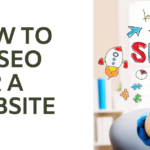Today’s digital landscape you have to learn about How to Build a Website for a Business. The Businesses of all types and sectors to maintain an effective online presence in order to compete successfully.
You will earn 0.5 $ after click on and and visit this pages
Amount will be transfer into timebusks account after 5 hours
A well-designed website can expand your reach, enhance brand credibility and boost customer engagement; in this blog post we will offer a step-by-step guide for developing an effective business website in 2023.
- How to Build a Website for a Business
- Plan Your Site’s Structure
- Register Your Domain Name (Domain)
- Choose Your Web Hosting Provider
- Select an Online Website Development Platform
- Build Your Website
- Craft Intriguing Content
- Implement SEO Strategies
- Implement Key Business Features
- Conduct A Website Test
- Launch Your Website
- Optimize and Maintain Your Website
How to Build a Website for a Business
Determine Your Website’s Purpose
Your website’s purpose should align with your overall business goals.

From selling products or services, generating leads, providing information or building brand recognition – having a goal for your website’s design and content will help determine its direction.
Plan Your Site’s Structure
Site structure planning improves user experience and helps search engines understand your content better.

Create an outline for the major pages and navigation of your website – such as Home, About Us, Services/Products, Blog and Contact Us pages.
Register Your Domain Name (Domain)
Your domain name serves as the address for your website on the internet and should ideally reflect the name or brand of your business or something similar.

Make sure it’s short, easy to pronounce and spell, doesn’t infringe upon trademarks and is non-offensive to users.
Choose Your Web Hosting Provider
Web hosting is where your website’s files will reside. When selecting a host provider, factors like uptime, speed, customer support, scalability and security features should all be taken into consideration.

Providers like Bluehost, SiteGround and HostGator are popular choices.
Select an Online Website Development Platform
Platforms like WordPress, Wix and Squarespace make website creation accessible to non-technical users.

If your site requires complex functionality or unique design elements that necessitate custom development work, consider hiring a web developer instead of building it yourself.
Build Your Website
Select a template or theme that complements both your brand’s style and the purpose of your website.

Make sure your design is clean, modern, mobile-friendly and responsive in 2023 when more people than ever use smartphones for browsing the web.
Craft Intriguing Content
Your content should clearly communicate who you are, what you offer and how it can solve customers’ issues.

Utilize eye-catching headlines, high-resolution images and concise calls-to-action – or consider hiring a professional copywriter who can craft persuasive and error-free copy.
Implement SEO Strategies
Implement SEO strategies to achieve top search engine results. When setting out to achieve ranking success on search engines, implement SEO tactics.

Implement appropriate keywords, write unique meta descriptions for every page, provide alt text for images and create valuable content that other will link back to.
Implement Key Business Features
Based on your business type, certain features will likely be necessary. For instance, an online store would need an e-commerce platform while service-oriented businesses might require an online booking system.

Make sure all contact details are easily accessible as well as consider adding live chat for instant customer support.
Conduct A Website Test
Before launching your website, be sure to conduct rigorous tests.

Make sure all links work, forms submit properly and that it loads appropriately on different devices and browsers.
Launch Your Website

Once your website looks and functions exactly as intended, it’s time to launch it live! Use social media, email marketing and any other channels your business utilizes for promotion of its new site.
Optimize and Maintain Your Website
Utilize tools such as Google Analytics to assess the performance of your website. Be sure to update and refresh content frequently, make improvements based on user behavior data, and keep up with website maintenance tasks.

Building a business website may seem intimidating at first, but with the right tools and guidance it can become manageable project.
A well-executed website can significantly impact your business; investing the necessary time and resources into creating something successful is worth your while – have fun building!





